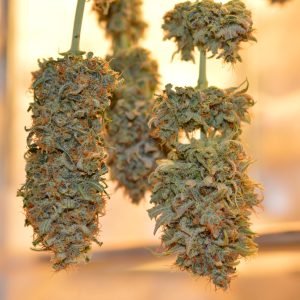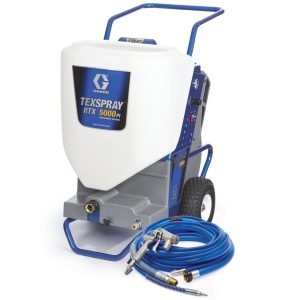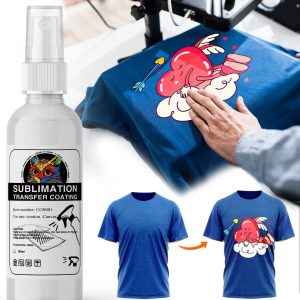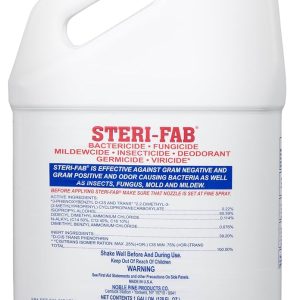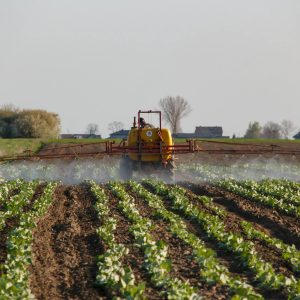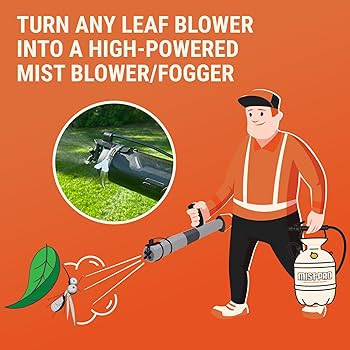
Mosquitoes can turn a perfect evening outdoors into a nightmare of constant swatting and itching. Whether you’re hosting a backyard barbecue, enjoying quiet moments on your patio, or simply trying to maintain your garden, these persistent pests can make outdoor activities unbearable. The solution lies in choosing the right mosquito sprayer system that effectively eliminates these unwanted guests while keeping your family and pets safe.
A quality mosquito sprayer transforms your property into a comfortable, pest-free environment where you can actually enjoy spending time outdoors. Unlike temporary solutions like citronella candles or basic bug sprays, professional-grade mosquito spraying equipment provides lasting protection that covers large areas efficiently. The investment in a proper mosquito control sprayer pays dividends in comfort, health protection, and the ability to fully utilize your outdoor living spaces.
Understanding Mosquito Sprayer Technology
Modern mosquito sprayer systems have evolved significantly from the simple pump sprayers of decades past. Today’s equipment incorporates advanced atomization technology, precision nozzles, and engineered delivery systems that maximize the effectiveness of mosquito control treatments while minimizing waste and environmental impact.
The science behind effective mosquito spraying involves creating the optimal droplet size for maximum pest contact and coverage. Mosquito spraying equipment must produce droplets small enough to remain suspended in air currents, allowing the treatment to reach mosquitoes in flight and in their hiding places. However, the droplets cannot be so small that they evaporate before making contact with the target pests.
Professional mosquito sprayer systems utilize various technologies including thermal fogging, cold fogging, and ultra-low volume (ULV) application methods. Each technology serves different purposes and environments, from residential backyards to commercial properties and agricultural applications.
Key Components of Effective Mosquito Sprayers
| Component | Function | Impact on Performance |
|---|---|---|
| Pump System | Creates pressure for spray delivery | Determines spray range and consistency |
| Nozzle Design | Controls droplet size and pattern | Affects coverage and chemical efficiency |
| Tank Capacity | Holds treatment solution | Influences operation time and productivity |
| Power Source | Drives pump and fan systems | Determines portability and runtime |
| Filtration | Prevents clogging and ensures smooth operation | Maintains consistent performance |
Types of Mosquito Sprayer Systems
Backpack Mosquito Sprayers
Backpack mosquito sprayers represent the perfect balance between mobility and capacity for most residential and small commercial applications. These units typically hold 4-6 gallons of treatment solution and provide hands-free operation that allows users to navigate around obstacles while maintaining consistent spray coverage.
The ergonomic design of quality backpack sprayers distributes weight evenly across the shoulders and back, reducing fatigue during extended spraying sessions. Professional landscapers and pest control operators often prefer backpack units because they can treat large areas without the need for frequent refilling, while still maintaining the maneuverability required for detailed work around plants, structures, and outdoor furniture.
Modern backpack mosquito sprayers feature adjustable pressure controls, multiple nozzle options, and reinforced tanks designed to withstand regular use with various chemical formulations. The better models include padded straps, quick-release mechanisms for easy filling and cleaning, and precision flow controls that prevent over-application of treatments.
Handheld Mosquito Sprayers
For smaller properties or targeted treatments, handheld mosquito sprayers offer convenience and precision that larger units cannot match. These compact devices excel in treating specific problem areas, applying treatments around sensitive plants, or providing quick touch-up applications between major treatments.
Battery-powered handheld mosquito sprayers have revolutionized small-scale pest control by eliminating the need for manual pumping while providing consistent spray pressure throughout the treatment session. Many models feature interchangeable nozzles that allow users to switch between fine mist applications for open areas and targeted stream patterns for treating specific hiding spots where mosquitoes congregate.
The portability of handheld units makes them ideal for treating elevated areas, dense vegetation, and confined spaces where larger equipment would be impractical. Professional technicians often carry handheld mosquito sprayers as secondary equipment to complement their primary spraying systems.
Truck-Mounted and Professional Mosquito Sprayers
Large-scale mosquito control operations require professional-grade mosquito sprayer systems capable of treating extensive areas efficiently and effectively. Truck-mounted units combine high-capacity tanks, powerful pumps, and advanced spray systems to cover acres of property in minimal time.
These professional mosquito spraying systems often incorporate GPS tracking, weather monitoring, and application rate controls that ensure precise treatment delivery while maintaining detailed records for regulatory compliance. Municipal mosquito control programs, golf courses, and large commercial properties rely on truck-mounted systems to provide consistent, area-wide protection.
The latest professional mosquito sprayer technology includes computer-controlled application systems that adjust spray patterns and chemical delivery rates based on wind conditions, temperature, and humidity. This precision ensures optimal treatment effectiveness while minimizing environmental impact and reducing chemical usage.
Choosing the Right Mosquito Sprayer for Your Needs
Property Size Considerations
The size of your property plays a crucial role in determining the most suitable mosquito sprayer system for your needs. Properties under one acre can typically be managed effectively with handheld or small backpack units, while larger properties benefit from higher-capacity systems that reduce treatment time and ensure consistent coverage.
For residential properties between 1-5 acres, a quality backpack mosquito sprayer provides the optimal combination of capacity, mobility, and treatment efficiency. These systems allow homeowners to treat their entire property in a single session while maintaining the precision needed for detailed work around landscaping and outdoor living areas.
Commercial properties, agricultural operations, and municipal applications require professional-grade mosquito spraying equipment with tank capacities of 50 gallons or more. These systems justify their higher cost through increased productivity, reduced labor requirements, and superior treatment consistency across large areas.
Treatment Frequency and Chemical Compatibility
Different mosquito sprayer systems are designed to work optimally with specific types of treatment chemicals and application schedules. Oil-based treatments require sprayers with chemical-resistant seals and components, while water-based solutions can be applied with standard equipment designed for aqueous applications.
The frequency of your mosquito control treatments influences equipment selection significantly. Properties requiring daily or weekly treatments benefit from durable, high-capacity systems designed for frequent use, while seasonal or occasional treatments may be effectively managed with lighter-duty equipment.
Professional mosquito sprayers often feature multiple tank systems that allow operators to switch between different chemical formulations without cross-contamination. This capability is essential for pest control professionals who serve multiple clients with varying treatment requirements and chemical preferences.
Budget and ROI Analysis
| Sprayer Type | Initial Cost Range | Annual Operating Cost | Treatment Capacity | Best For |
|---|---|---|---|---|
| Handheld Electric | $50-$200 | $30-$100 | Up to 0.5 acres | Small yards, spot treatments |
| Backpack Manual | $100-$400 | $50-$150 | 1-3 acres | Residential properties |
| Backpack Powered | $300-$800 | $100-$250 | 2-5 acres | Large homes, small commercial |
| Professional ULV | $2,000-$8,000 | $500-$1,500 | 10+ acres | Commercial operations |
Mosquito Sprayer Maintenance and Optimization
Regular Cleaning and Component Care
Proper maintenance of your mosquito sprayer equipment directly impacts both performance and longevity. Chemical residues can corrode internal components, clog nozzles, and reduce spray quality if not removed promptly after each use. Establishing a consistent cleaning routine prevents costly repairs and ensures reliable operation when mosquito pressure is highest.
The cleaning process begins immediately after each spraying session with a thorough rinse of all fluid pathways using clean water. Many professional operators follow this initial rinse with a neutralizing solution that removes chemical residues and prevents corrosion of metal components. The tank, pump, hoses, and nozzles require individual attention to ensure complete removal of treatment chemicals.
Professional mosquito sprayer systems often include automatic flushing systems that simplify the cleaning process while ensuring thorough removal of chemical residues. These systems can be programmed to run cleaning cycles automatically, reducing maintenance time and improving consistency of equipment care.
Nozzle Selection and Calibration
The nozzle system represents the most critical component of any mosquito spraying equipment setup, as it determines droplet size, spray pattern, and application rate. Different mosquito control scenarios require specific nozzle configurations to achieve optimal results, and understanding these requirements separates effective treatments from wasteful chemical applications.
For general area treatments, flat-fan nozzles provide wide coverage patterns that efficiently treat large open spaces. When targeting mosquito resting areas in dense vegetation, hollow-cone nozzles create penetrating spray patterns that reach into foliage where mosquitoes hide during daylight hours. Adjustable nozzles offer versatility but require careful calibration to maintain consistent performance.
Regular nozzle calibration ensures accurate chemical application rates and prevents over-treatment that wastes chemicals and potentially harms beneficial insects. Professional operators calibrate their mosquito sprayer nozzles at the beginning of each season and after any maintenance that affects the spray system.
Advanced Mosquito Sprayer Techniques
Integrated Pest Management Approaches
Modern mosquito control extends beyond simple chemical application to encompass comprehensive mosquito sprayer strategies that maximize effectiveness while minimizing environmental impact. Integrated Pest Management (IPM) principles guide professional operators in selecting treatment timing, chemical formulations, and application methods that target mosquitoes while preserving beneficial insects and reducing chemical usage.
The most successful mosquito control programs combine multiple treatment approaches, using mosquito spraying equipment in conjunction with habitat modification, biological controls, and targeted larvicide applications. This comprehensive approach provides superior long-term results compared to relying solely on adult mosquito spraying.
Weather conditions significantly influence mosquito sprayer effectiveness, with optimal treatment windows occurring during calm conditions with moderate temperatures and humidity levels. Professional operators monitor weather conditions continuously and adjust their spraying schedules to maximize treatment effectiveness while minimizing drift and off-target impacts.
Resistance Management Strategies
Mosquito populations can develop resistance to chemical treatments over time, making it essential to rotate between different classes of active ingredients and application methods. Professional mosquito sprayer operations incorporate resistance management protocols that maintain treatment effectiveness while preventing the development of resistant mosquito populations.
The rotation of chemical classes requires spraying equipment capable of handling different formulation types without cross-contamination. Many professional operators maintain separate spray systems for different chemical classes or invest in equipment with multiple tank systems that allow quick switching between formulations.
Monitoring mosquito populations for signs of resistance involves regular testing and evaluation of treatment effectiveness. Areas showing reduced control may require adjustments to spray timing, chemical selection, or application methods to restore effective mosquito suppression.
Environmental Considerations and Best Practices
Protecting Beneficial Insects
Responsible mosquito sprayer operations prioritize the protection of beneficial insects including pollinators, predatory insects, and other non-target species that provide important ecological services. Modern mosquito control chemicals and application methods have been developed specifically to minimize impacts on beneficial insects while maintaining effective mosquito control.
Timing mosquito spray applications to avoid periods when beneficial insects are most active represents one of the most effective protection strategies. Most mosquito control chemicals have minimal impact on beneficial insects when applied during early morning or evening hours when pollinators are not actively foraging.
The selection of mosquito spraying equipment and nozzle configurations influences the precision of chemical applications and the ability to avoid treating areas where beneficial insects are present. Fine-droplet applications can be directed specifically at mosquito resting areas while avoiding flowers and other areas where beneficial insects concentrate.
Water Source Protection
Mosquito sprayer systems used near water sources require special attention to prevent contamination of streams, ponds, and groundwater supplies. Many mosquito control chemicals are toxic to aquatic organisms and require careful application to prevent runoff or direct contact with water bodies.
Buffer zones around sensitive water sources provide protection while allowing effective mosquito control in surrounding areas. The width of these buffer zones depends on the specific chemicals being used, application equipment, and local environmental conditions that influence chemical movement.
Modern mosquito spraying equipment includes features designed to minimize environmental impact, including low-drift nozzles, GPS-guided application systems, and automatic shutoff mechanisms that prevent accidental chemical release in sensitive areas.
Cost-Effective Mosquito Control Strategies
DIY vs Professional Services
Homeowners considering mosquito sprayer equipment must evaluate the costs and benefits of do-it-yourself treatments compared to professional mosquito control services. While professional services provide expertise and guaranteed results, the long-term costs can exceed the investment in quality spraying equipment for many residential applications.
The break-even point for purchasing mosquito spraying equipment typically occurs within 2-3 years for most residential properties, assuming regular treatment schedules. Properties requiring frequent treatments or covering large areas reach break-even points more quickly, while smaller properties or those requiring only occasional treatments may be better served by professional services.
Professional mosquito sprayer equipment requires significant initial investment but provides superior treatment capacity and durability compared to consumer-grade alternatives. Commercial property owners and pest control professionals justify this investment through increased productivity, reduced chemical usage, and improved treatment consistency.
Chemical Selection and Application Rates
The choice of mosquito control chemicals significantly impacts both treatment effectiveness and operating costs. Generic chemical formulations often provide substantial cost savings compared to brand-name products while delivering equivalent mosquito control results when applied with quality mosquito sprayer systems.
Application rates must be carefully calibrated to provide effective mosquito control without wasting chemicals or exceeding label requirements. Over-application increases costs without improving results and may actually reduce treatment effectiveness by causing mosquito avoidance behaviors.
Professional operators often achieve better cost-effectiveness through precise chemical application rates, optimal timing of treatments, and the use of adjuvants that improve chemical performance. These techniques require experience and proper equipment but can reduce chemical costs by 20-30% while maintaining or improving treatment results.
Seasonal Mosquito Sprayer Strategies
Spring Preparation and Early Season Control
Spring mosquito sprayer preparations set the foundation for effective seasonal control by addressing overwintering mosquito populations before they reach peak numbers. Early season treatments target adult mosquitoes emerging from winter hiding places and prevent the establishment of breeding populations that will cause problems throughout the summer months.
Equipment preparation begins with thorough inspection and maintenance of all mosquito spraying components, including pumps, nozzles, hoses, and tank systems. Replacing worn components before the busy season prevents equipment failures during peak mosquito periods when reliable operation is most critical.
The first mosquito sprayer applications of the season often require higher chemical concentrations or more frequent treatments to address overwintering adult populations that may be more difficult to control than newly emerged mosquitoes. Professional operators adjust their treatment protocols based on local mosquito species and seasonal patterns observed in previous years.
Peak Season Optimization
During peak mosquito season, mosquito sprayer operations require maximum efficiency and effectiveness to maintain comfortable outdoor conditions. This period typically extends from late spring through early fall, depending on local climate conditions and mosquito species present in the area.
Treatment frequency often increases during peak season, with many properties requiring weekly or bi-weekly applications to maintain effective control. The increased treatment schedule places higher demands on spraying equipment and requires careful planning to ensure adequate chemical supplies and equipment availability.
Weather conditions during peak season can limit treatment opportunities, making it essential to maximize the effectiveness of each spraying session. Professional operators monitor weather forecasts continuously and adjust their schedules to take advantage of optimal treatment conditions while avoiding periods that would reduce treatment effectiveness.
Fall and Winter Equipment Storage
Proper storage of mosquito sprayer equipment during the off-season prevents damage and ensures reliable operation when treatments resume. The storage process begins with thorough cleaning and removal of all chemical residues that could cause corrosion or component damage during extended storage periods.
All fluid pathways must be completely drained or flushed with appropriate preservation solutions to prevent freezing damage in areas subject to cold temperatures. Pump seals and gaskets benefit from light coating with appropriate lubricants that prevent drying and cracking during storage.
Professional mosquito sprayer systems often require more extensive storage preparations, including battery maintenance, engine preservation, and protection of electronic components. Following manufacturer storage recommendations prevents costly repairs and ensures equipment reliability when mosquito control operations resume.
Technology Integration and Future Trends
Smart Mosquito Sprayer Systems
The integration of smart technology into mosquito sprayer equipment represents the cutting edge of modern pest control, offering unprecedented precision and efficiency in mosquito control operations. GPS-guided systems ensure accurate coverage patterns while preventing over-treatment of previously sprayed areas, reducing chemical usage and improving treatment consistency.
Weather monitoring integration allows smart mosquito sprayers to automatically adjust application rates and timing based on real-time environmental conditions. Wind speed, temperature, and humidity sensors provide data that optimizes spray droplet formation and chemical effectiveness while minimizing environmental impact.
Remote monitoring capabilities enable operators to track equipment performance, chemical usage, and treatment coverage from anywhere with internet connectivity. This technology proves particularly valuable for commercial operations managing multiple properties or coordinating large-scale mosquito control programs.
Precision Application Technologies
Advanced mosquito sprayer systems incorporate precision application technologies that target treatments specifically at mosquito populations while avoiding non-target areas and organisms. Variable-rate application systems adjust chemical delivery based on mosquito population density, habitat characteristics, and environmental conditions.
Drone-based mosquito spraying represents an emerging technology that provides access to difficult-to-reach areas while offering precise control over treatment placement. These systems excel in treating wetland areas, dense vegetation, and elevated locations that traditional ground-based equipment cannot effectively reach.
The future of mosquito sprayer technology includes artificial intelligence systems that learn from treatment results and automatically optimize application parameters for maximum effectiveness. These systems promise to reduce chemical usage while improving mosquito control results through continuous learning and adaptation.
Ready to Reclaim Your Outdoor Space?
Don’t let mosquitoes control your outdoor activities any longer. Investing in the right mosquito sprayer system transforms your property into a comfortable, pest-free environment where you can truly enjoy spending time outdoors. Whether you choose a handheld unit for small areas or a professional-grade system for large properties, effective mosquito control is within reach.
Take action today: Research the mosquito sprayer options that best fit your property size, budget, and treatment needs. Your family’s comfort and the full enjoyment of your outdoor living spaces depend on making the right choice in mosquito control equipment.
